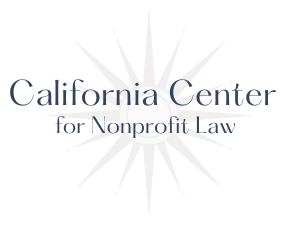
TG 3-33: Foundation Classification – Type III Supporting Organizations – IRC Section 509(a)(3), Publication 6017
The preference of many charities is to have public charity status under the Internal Revenue Code instead of private foundation status. Private foundations are subject to more complex and strict regulations than public charities. An option for charities that want to qualify as public charities is to have a qualifying relationship with a supporting organization.
A supporting organization carries out its exempt purpose by supporting another exempt organization. However, to merit treatment as a public charity, the supporting organization must have a relationship with the organization it supports that is close enough to ensure that the supported organization is properly supervising or involved and/or aware of the supporting organization’s operations.
If you have further questions about your organization’s legal responsibilities and eligibility requirements under the IRC, please contact the California Center for Nonprofit Law for assistance.
Updated Technical Guidance for Type III Supporting Organizations
The Internal Revenue Service (IRS) recently updated its technical guidance for exempt organizations. One of these guidance documents is Publication 6017 or TG 3-33, which addresses the requirements that 501(c)(3) organizations must meet to qualify as Type III supporting organizations under Internal Revenue Code (IRC) Section 509(a)(3).
Defining Type III Supporting Organizations
As per TG 3-33, a Type III supporting organization is operated in connection with one or more publicly supported organizations. A Type III supporting organization must be responsive to the needs and demands of each of its supported organizations. Additionally, a Type III supporting organization must constitute an integral part of or maintain significant involvement in each supported organization.
The most crucial characteristic of a Type III supporting organization is that it must be responsive to and significantly involved in the operations of the publicly supported organization. To qualify as a Type III supporting organization, it must meet the four tests applicable to all supporting organizations:
- Organizational test;
- Operational test;
- Relationship requirement; and
- Control test
However, Type III supporting organizations also must meet separate responsiveness and integral part tests.
Organizational Test
Treas. Reg. 1.509(a)-4(c)(1) requires that a supporting organization’s organizational document meet the following requirements:
- Limit the purposes of the organization to benefiting, performing the functions of, or carrying out the purposes of one or more specified organizations;
- Not expressly empower the organization to engage in activities, not in furtherance of its authorized purposes;
- Identify the specified publicly supported organization(s) that it is supporting; and
- Cannot expressly empower the organization to support or benefit any organization other than the specified publicly supported organizations.
Operational Test
Under Treas. Reg. 1.509(a)-4(e)(1), a supporting organization is operated exclusively to support one or more specified publicly supported organizations only if it engages solely in activities that support or benefit the specified publicly supported organizations. These activities include:
- Making payments to or for the use of;
- Providing services or facilities for individual members of the charitable class benefited by the specified publicly supported organization;
- Using its income to carry on an independent activity or program that only supports or benefits the specified publicly supported organization(s).
Relationship Requirement
Like all supporting organizations, Type III supporting organizations must be operated in connection with one or more publicly supported organizations under Treas. Reg. 1.509(a)-4(i). However, Type III supporting organizations must also qualify as either functionally integrated or non-functionally integrated, which is not a requirement for other types of supporting organizations.
The relationship requirement is met when a supporting organization is responsive to the needs or demands of its supported organization(s). The supporting organization must also be an integral part of, or maintain a significant involvement in, its supported organization(s’ operations under Treas. Reg. 1.509(a)-4(f)(3). Just like all types of supporting organizations, Treas. Reg. 1.509(a)-4(f)(5) requires that a Type III supporting organization may not accept a gift or contribution from certain controlling donors.
Notification Requirement
Section 509(f)(1)(A) requires that a Type III supporting organization provide certain information to each of its supported organizations each tax year. The purpose of this requirement is to ensure that it is responsive to the needs or demands of the supported organization(s) as required.
Under Treas. Reg. 1.509(a)-4(i)(2), a Type III supporting organization must annually provide the following documents to its supported organization(s):
- A written notice describing the type and amount of all of the support it provided to the supported organization during the preceding tax year, along with a brief narrative description of the support provided and sufficient financial detail for the recipient to identify the types and amounts of support;
- For non-functionally integrated supporting organizations only, the written notice must include all distributions that count toward the distribution requirement;
- A copy of its most recently filed Form 990 or 990-EZ; and
- A copy of its current governing documents, including its articles of organization and bylaws (if any) and any amendments to such documents, unless such documents have been previously provided. These documents must be delivered or electronically transmitted by the last day of the fifth month of the supporting organization’s tax year.
Responsiveness Test
A Type III supporting organization must meet a two-part Responsiveness Test for each of its supported organizations, consisting of Governance Structure and Significant Voice tests.
A supporting organization must maintain one of three governance structures for its supported organization(s) under Treas. Reg. 1.509(a)-4(i)(3)(ii) as follows:
- One or more must be elected or appointed by the officers, directors, trustees, or membership of its supported organization(s);
- One or more must be officers, directors, or trustees of, or hold other important offices in, its supported organization(s); or
- They must maintain a close and continuous working relationship with the officers, directors, or trustees of its supported organization(s).
Through its governance structure, a supporting organization must give each supported organization a significant voice in its operations, including:
- Its investment policies;
- The timing and manner of making grants;
- The selection of grant recipients; and
- Its use of income or assets.
Integral Parts
A Type III supporting organization also must show it maintains significant involvement in its supported organization(s)’ operations and provides such support by satisfying one of the two integral part tests: the functionally-integrated test or the non-functionally-integrated test.
To qualify as functionally integrated, a supporting organization must meet one of the following:
- Substantially all activities directly further the exempt purposes of its supported organization(s), and in the absence of the supporting organization’s involvement, the supported organization(s) would normally engage in such activities;
- Is the parent of each of its supported organizations; or
- Supports only government-supported organizations.
On the other hand, to qualify as a non-functionally integrated supporting organization, it must satisfy distribution and attentiveness requirements, except for certain trusts established before November 20, 1970, in some circumstances.
The distribution requirement states that the Type III supporting organization must distribute its distributable amount. The distributable amount is 85% of the supporting organization’s adjusted net income for the prior tax or its minimum asset amount for the prior tax year, whichever is greater.
The attentiveness requirement states that the Type III supporting organization must distribute one-third or more of its distributable amount to one or more supported organization(s) attentive to its operations.
Control Test
Finally, a Type III supporting organization must meet the control test. More specifically, a supporting organization may not be directly or indirectly controlled by one or more disqualified persons. For the purposes of a Type III supporting organization, a disqualified person has the same definition as for Type I and II supporting organizations.
The California Center for Nonprofit Law Can Advise and Guide You
The California Center for Nonprofit Law focuses on legal matters affecting charitable organizations, churches, and other nonprofit entities. We are here to represent your interests and give you the advice you need. We offer a wealth of experience handling the unique legal issues that charitable organizations routinely face. Call us today at the California Center for Nonprofit Law offices at (949) 892-1221, email us at info@NPOlawyers.com, or contact us online for more information. Together, we can navigate the myriad of laws and regulations that apply to your charity at the federal, state, and local levels.
